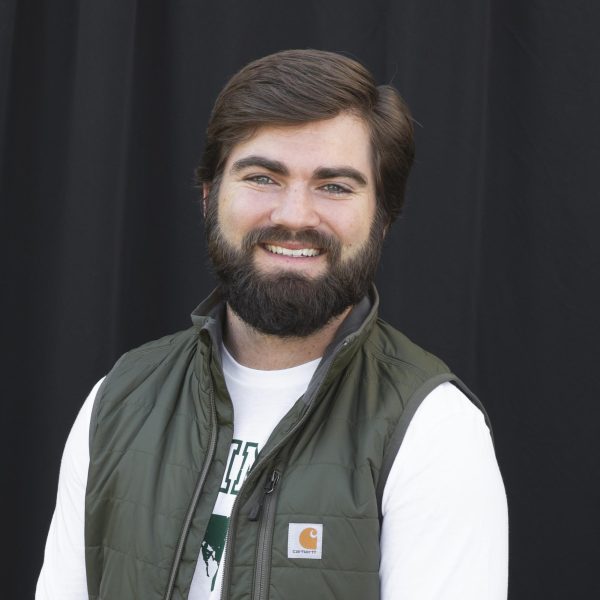It’s the summer of 2023. I’m sitting in the dirt at sunrise under an I-15 overpass in the middle of one of Salt Lake City’s largest homeless encampments. The smell is the kind that pinches your nose every breath you take. I have an unlit cigarette in my hand and a mangey blanket wrapped around my shoulders with a Panasonic camera with a zoom lens hidden underneath. The night before, I had received a tip from a source of mine that the Salt Lake City Police Department was going to raid this encampment, continuing their discriminatory “abatement” policy.
Not more than an hour later, the area I was staked out in is being bulldozed and sirens are blaring. A woman who was camped not too far from my spot is screaming at the people throwing away every last one of her personal belongings. By now, the secret’s out: I’m an investigative journalist trying to catch the police in the act of destroying property and leaving hundreds of unhoused people with less than they had before. The officer in charge starts to escort me off of the property along with a photographer from the Salt Lake Tribune. This is new. Of all the abatements I had attended this year, no officer had ever asked me to leave. I also didn’t recognize this officer. Something was different.
This encampment sat on Union Pacific property, and these police officers were not operating under city authority. They were federal officers patrolling a part of the city along the railroad line that was primed for gentrification and property value hikes.
In late 2021, I received a job offer as an entry-level writer for the City Journals, where I would be reporting on government and politics for the southern part of the Salt Lake Valley. I never considered taking it until I read a book called “Colonize This,” which was a compilation of many short stories written by women of color on their experiences facing racism and sexism in the United States. Reading it made me feel a need to take action and do something about the horrific injustices in this country. I remember the job offer. Maybe this was an opportunity. So I took it.
No more than a year later I found myself in the office of the Chrony’s editor-in-chief hearing how my first article — which I had spent months writing — needed a lot of work. I was anxious to finally be published by the paper and despite my hard work, the nature of my stories required a lot more time. I felt pure frustration.
Later that year, after hours of revision and advice from my editors, that article won “Best Investigative Piece” at EPICS in 2023. While it felt like a lot of pressure in the moment, taking time to be constructively honest made all the difference for me.
My time writing at the Chrony has been a rollercoaster. I had a tendency to overcommit to things outside of my comfort zone that stretched me thin more times than I can count. There were times when I thought it would be smart for me to let go of responsibilities because the load I was carrying felt too heavy. The people working alongside me made all those times bearable and made me the best journalist I could be.
I have interviewed state legislators, mayors and business owners. While interviewing the well-known decision makers was exciting in its own right, hearing the voices of those that aren’t used to having a voice has by far been the most rewarding.




